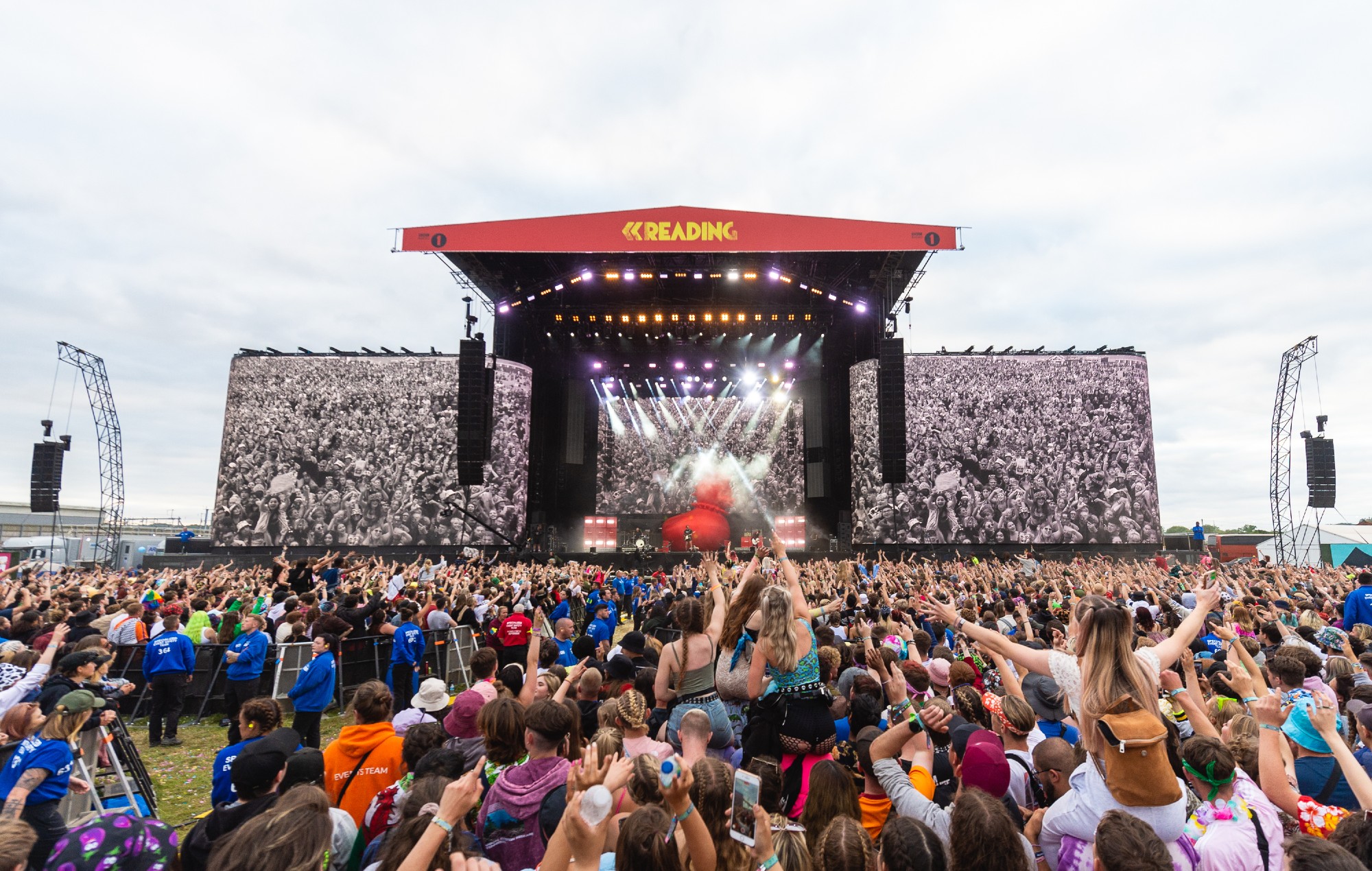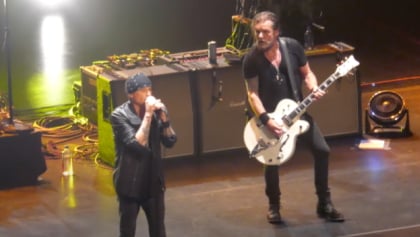
Disclaimer: As a Twitch affiliate, Twitch occasionally gives me money. Or they would, if I streamed more than once or twice a year.
Twitch really seems to give a shit. That was the main takeaway from TwitchCon Amsterdam 2022, my first big in-person event post pandemic. After years of doing this job from the corner of my kitchen it was great to see people out enjoying themselves, coming together and – because it’s TwitchCon – livestreaming every second of their convention experience. Yet, it felt like a friendly and inclusive community in the halls.
- READ MORE: The 8 best PC games you need to play in 2022
If we’re being honest, Twitch, the streaming company so big that it’s hard to name any serious competitors, probably doesn’t need to give a shit. They’ll be sitting on the throne for a while. But, from everyone I spoke to working at Twitch there’s a real sense of excitement and enthusiasm for the work they do: as the pioneers in the space, they have some responsibility for how it ends up.
As it turns out, what people want on Twitch is to feel safe. It’s something that Twitch and its community have long-battled with. Hate raids – bad actor streamers using Twitch’s raid feature maliciously to drop hundreds of trolls on someone all at once – have long been a problem and it’s even something I’ve experienced myself. TwitchCon Amsterdam’s keynote was largely focused on two things: the buzz of an in-person event and several new measures that are designed to make Twitch that little bit safer for those who use it.

Mary Kish, director of community marketing at Twitch, says the company has heard from users that “creators are really looking for not just a welcoming and warm space, but a safe one.”
“These users genuinely can’t have a welcoming and warming space If it’s not safe,” continues Kish, who is a streamer herself. “I wouldn’t be able to stream if I didn’t feel safe, I wouldn’t go live, and I wouldn’t feel like it was a nice place. So it all has to be safe. We have grown in the safety department more than anywhere else. It has shown to be somewhere we’re putting a lot of effort right now.”
Much of that effort was prompted by a turbulent 2021 for Twitch, which saw a slew of hate raids – often homophobic or racist in nature – target streamers. At one point, the vitriol was so prolific that streamers organised a boycott of the site in protest. Speaking to NME, DonaTarte, a drag queen and Twitch’s “queen of baking”, says it was a difficult time for under-represented groups on Twitch.
“There came a point, there was a ton of hate raids across all of Twitch,” recalls Tarte, who says “A lot of queer people, a lot of drag queens, and a lot of Black queer femme people” were subjected to doxxing – a term used when someone’s personal details are deliberately shared online. “We were just getting destroyed.”

Since then, Twitch has stepped up with a host of authenticators and safety features designed to prevent streamers from being made a target of hatred. Tarte says that although it took time, “Twitch did pull through.” For Kish, this meant doing more than just banning bad actors after a hate raid – Twitch needed to stop it from ever happening.
“When we’re talking about safety on Twitch, it can’t just be post-event, it can just be mods who saying: I’ll remove you after you say something bad. It should be pre-emptive,” says Kish. “How are we thinking about this before something happens? And we give that power to the creator, because the creator should ultimately decide how much control they want to feel safe, but also grow. Because feeling safe shouldn’t harm your growth as a streamer.”
“At the end of the day, we go to Twitch to find like minded people that will most likely enjoy the same things we like,” continues Kish, who points to her own community as an example. “They all like Silent Hill, they all like Resident Evil, they all like my games. This is crucial: we have to ensure that if you like Resident Evil, you can find a streamer that also loves Resident Evil without harming that discovery. But you’ve got to be safe.”

Doug Scott, chief customer officer at Twitch, agrees that “appropriate moderation support” is the foundation for keeping streamers safe. “As everyone knows, mods are the absolute champions on Twitch – everyone should give it up for the mods! We make sure that [streamer’s] mods are prepared, that they’re aware of when things are going live.. If we feature [streamers] we make sure they have appropriate mod support, we have internal support in the form of a massive trust and safety team that manages all of the goings-on if there’s any reports. They can also be proactively monitoring channels to make sure that there’s no abusive behaviour and things stay positive.”
“We’ll just heavy up on making sure there’s people paying attention,” adds Scott. “There’s a tremendous number of tools that we’ve built over the last couple of years in particular that give mods a lot more control over reviewing posts that are coming, knowing about users have been banned, we’ve had a lot of proactive machine learning that helps mods understand if someone’s a likely evader of bans, if that will come up. We just talked about being able to share ban lists between peers. There’s a lot of tools like that on the back-end that allow our creators and their teams to manage the overall safety and tone of the channel.”
The shared ban lists that Scott touches on is one of Kish’s favourite safety features on Twitch. “It allows me to share list of anyone that I have booted from my stream because I did not like them, and share that information to you that does not act on it. So you don’t actually have to do anything about it. You don’t have to remove them. It just gives you that information.”

“What we’re learning from creators is…you’re seeing a lot more of this, right? Everybody’s asking for it. And we noticed this and it’s like, of course we have, we’re listening all the time! Safety is never done on Twitch, and it takes a long time to make some of this stuff. It takes quite a long time to make something like a shared ban list. It feels really good to be able to release it and say, ‘Hey, this has been something we’ve had in the pipe for a while. It’s literally because you asked for it. It’s literally because we heard you talk about it. We knew this was something you needed.’”
That safety-first approach – or as Kish puts it, “getting rid of anyone that’s not there to have a good time” – has done wonders for the streaming giant. Looking around the convention, Tarte says she feels safe mingling at TwitchCon, and got to see the company’s commitment to security first-hand. “As we started off the show, there was someone at the front who booed a recording,” she says. “I’ve never felt so powerful – I smiled, walked to the back, went to a stage manager [and told them what was happening]. She pressed her phone and says ‘Joseph, remove them’ and I felt so powerful!”
“That to me is how it feels now – I feel so safe here. Everyone has made sure I feel safe here. During the show, all the queens felt very welcomed. I feel like everything is amazing compared to two or three years ago, where there wasn’t the expectation of having tons of drag queens infiltrate the Twitch stage and livestream.”
The topic of better representing Twitch’s diverse community is something that Kish holds dearly. “Who doesn’t want to see themselves on screen? You want to see people who look like you, and talk like you, and have like-minded views – it’s our responsibility to give it to them.”
“On a personal note, I am in this position because I was championed by people who saw potential in me and said ‘you can do this’,” continues Kish. “Previous positions were very male-dominated – Twitch has been very male-dominated historically. I was championed by women, I have had the pleasure of having multiple incredible women managers. There’s a lot of women in upper-management, which I think makes a huge difference. The buck stops at me to ensure my team is diverse – that diverse team will make better decisions for the community, and for the company. You’re responsible for the company you keep and for the people that are around you: I want my space diverse, and I want to pay it forward because somebody helped me.”
It’s fair to say Twitch has made huge strides in representation and safety, but the battle against internet trolls is far from over. Kish hopes that Twitch will be able to continue fulfilling more of the community’s safety-oriented requests in the future. “That will not stop,” says Kish. “We will never stop releasing things based on that feedback.”
“Every day, somebody does something really fucking cool on Twitch. Every day, someone is raising millions of dollars for charity, or teaching someone to dress in drag, or playing an amazing scary game,” beams Kish. “Somebody is finding a really deep, meaningful connection with someone that they care about, that they didn’t have and they needed. We do really good things. Gamers do good. Twitch streamers do good – and I want to talk about that all the time!”
Next year, TwitchCon is heading to Paris – here’s the details.
The post “Safety is never done on Twitch”: why the streaming giant is gearing up to protect streamers appeared first on NME.









